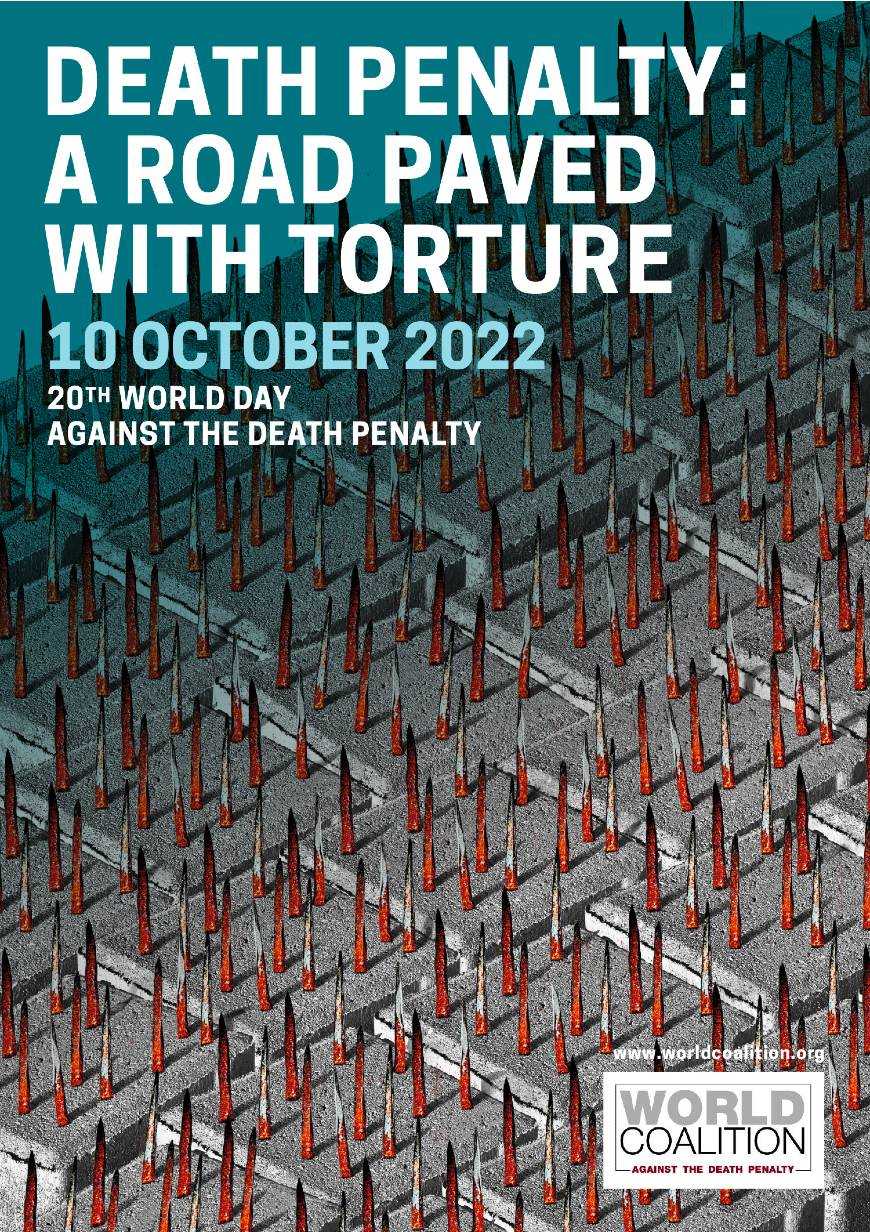2022 European and World Day against the Death Penalty

Observed every 10 October it is an annual occasion to broaden public awareness on the need for capital punishment abolition. This year marks the twentieth anniversary of Protocol 13 to the European Convention on Human Rights (ECHR) and dedicated to reflecting on the relationship between the use of the death penalty and torture or other cruel, inhuman, and degrading treatment or punishment.
Today on the World and European Day Against the Death Penalty, the Center for Civil Liberties reaffirm their opposition to the use of capital punishment in all circumstances and call for the universal abolition of the death penalty.
We welcome the continued decline in the use of the death penalty, confirming the overall trend towards universal abolition. In 2019, for a second consecutive year, executions were carried out in only 20 countries around the world. This is a historic low, but it is nonetheless not universal abolition. A minority of 18 states, 9% of the total number of UN Member States, still carried out executions in 2021. We, therefore, use this occasion to call on all Members of the United Nations to support universal abolition.
International organization – World Coalition Against the Death Penalty is international NGO specialy assembeled to promote the abolition.
According to Amnesty International data:
- 110 States have abolished the death penalty for all crimes
- 7 States have abolished the death penalty for common law crimes
- 27 States are abolitionists in practice
- 55 States are retentionists
- The 5 States that executed the most in the world in 2021 are, in order: China, Iran, Egypt, Saudi Arabia, and Syria.
- 28,670 individuals are known to be under a sentence of death around the world at the end of 2021.
Many governments do not make publicly available numbers on their use of the death penalty (for ex. Iran and China).
Also, important to mention a grey zone of a impact of the death penalty on women. Information available suggests that in some states women are disproportionately represented on death row for certain offenses and subject of gender-based violence.
Perpetrators of crimes must be held accountable and punished. However, the experience of abolitionist countries has shown that the death penalty does not deter violent crime nor contribute to a safer society. On the contrary, killing as a punishment perpetuates a cycle of senseless violence.
We call upon those Council of Europe Member States who have not yet acceded to the relevant Protocols to the European Convention on Human Rights and to the Second Optional Protocol to the International Covenant on Civil and Political Rights, aiming at the abolition of the death penalty to do so without delay. We urge Belarus, the only European Country still carrying out executions, to abolish the death penalty and join the large majority of nations that have abandoned this cruel and inhuman practice once and for all. We also call on those Council of Europe observer States, who have not yet abolished death penalty, to promote an open debate on the obstacles blocking their path towards abolition of the death penalty.
Two Member States of the Council of Europe that have not yet acceded to this Protocol – Armenia and Azerbaijan.
We also encourage all countries to join the Global Alliance for Torture-Free Trade, a remarkable example of global cooperation against torture and the death penalty, and to step up efforts towards establishing common international standards on torture-free trade.

